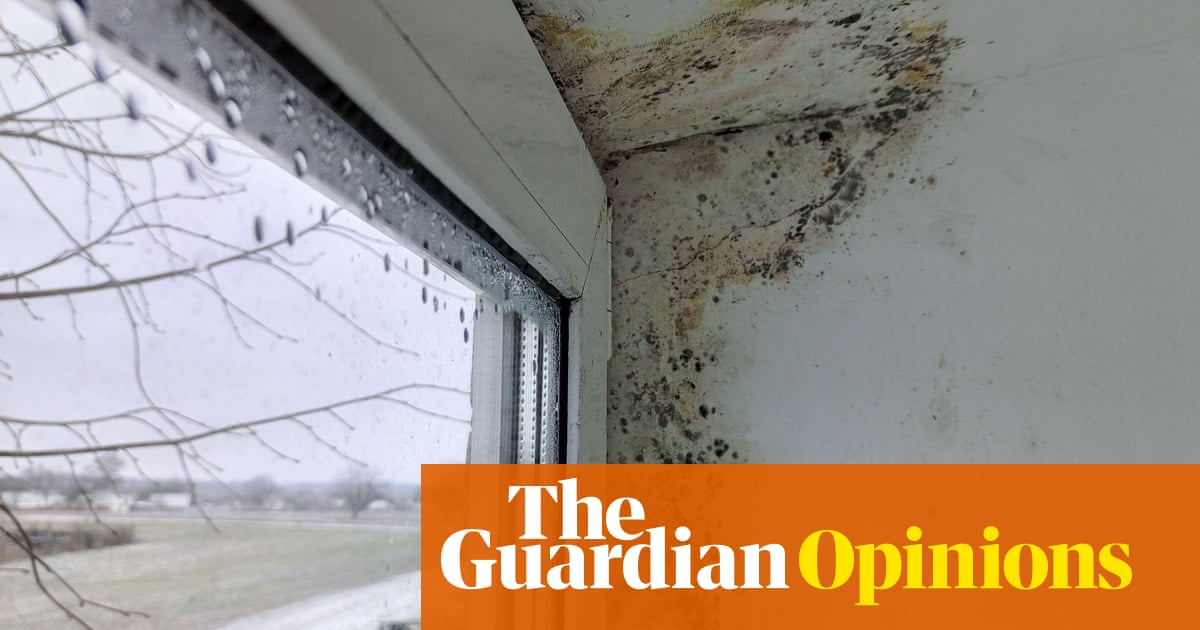The Guardian view on social housing: invest boldly to tackle ‘simmering anger’ about substandard homes | Editorial

The most obvious social housing problem in Britain is the lack of it. The failure to build enough homes to keep up with need, and replace those sold off under the right-to-buy scheme, has adversely affected millions of lives. In parts of England, the wait for family-size homes has reached 100 years, with long waiting lists also in Scotland and Wales. Charities rightly call this a national scandal.
While the slowdown dates back decades, the 60% cut in the affordable housing budget in 2010 made the situation far worse. The resulting shortages mean millions of people are stuck in privately rented accommodation with no prospect of buying their own. Hundreds of thousands of others are officially homeless, and trapped in overcrowded temporary flats and rooms.
But another problem has now crept up on this one. With complaints from tenants about repairs soaring, the social housing sector is increasingly failing people with homes as well as those without them. The housing ombudsman for England, Richard Blakeway, warned this week that “simmering anger” about substandard living conditions, including mould and damp, could boil over.
This is a crucial moment for housing campaigners and concerned professionals such as Mr Blakeway. In less than two weeks, the chancellor’s spending review will set out how much money the government will commit to spend on housing between now and 2029. The £2bn announced so far is regarded as a downpayment, enough for 18,000 homes. Billions more will be needed if affordable homes are to be a substantial portion of the government’s 1.5m target. Angela Rayner, the deputy prime minister, is widely understood to be dissatisfied with the Treasury’s offer so far.
She is right to insist that social housing is prioritised. This means capital budgets, but also funding for temporary accommodation, repairs and improvements, including those that reduce emissions and bills. For too long, social housing failures have been dismissed as second-tier concerns, largely because the tenure is for people on lower incomes.
British homeowners and landlords have reaped huge advantages in recent years on the back of rising prices. The renters’ rights bill began a process of rebalancing housing policy towards those without property assets. Now ministers must go further and show that they recognise access to affordable housing as a fundamental entitlement.
Other changes besides budget increases are already in progress. Social tenants should soon see the benefit of rules making housing associations more professional and accountable. Specialist qualifications will be rolled out, and providers will for the first time be subject to freedom of information laws. From October, Awaab’s law – primarily focused on England – imposes a 24-hour deadline for emergency repairs. Longer-term rent settlements will help housing providers, which do not all deserve to be painted as villains. There have been grave failures, none more appalling than the fire at Grenfell Tower in London, but many of the problems are systemic rather than the fault of particular people or organisations.
Again and again, polls show how highly healthcare is valued by voters. But housing and health are closely connected. When the government announces its spending plans, it should spell this out to voters. Ensuring that everyone has a safe, suitable and affordable home is a crucial step on the road to national recovery.
-
Do you have an opinion on the issues raised in this article? If you would like to submit a response of up to 300 words by email to be considered for publication in our letters section, please click here.
Source link







